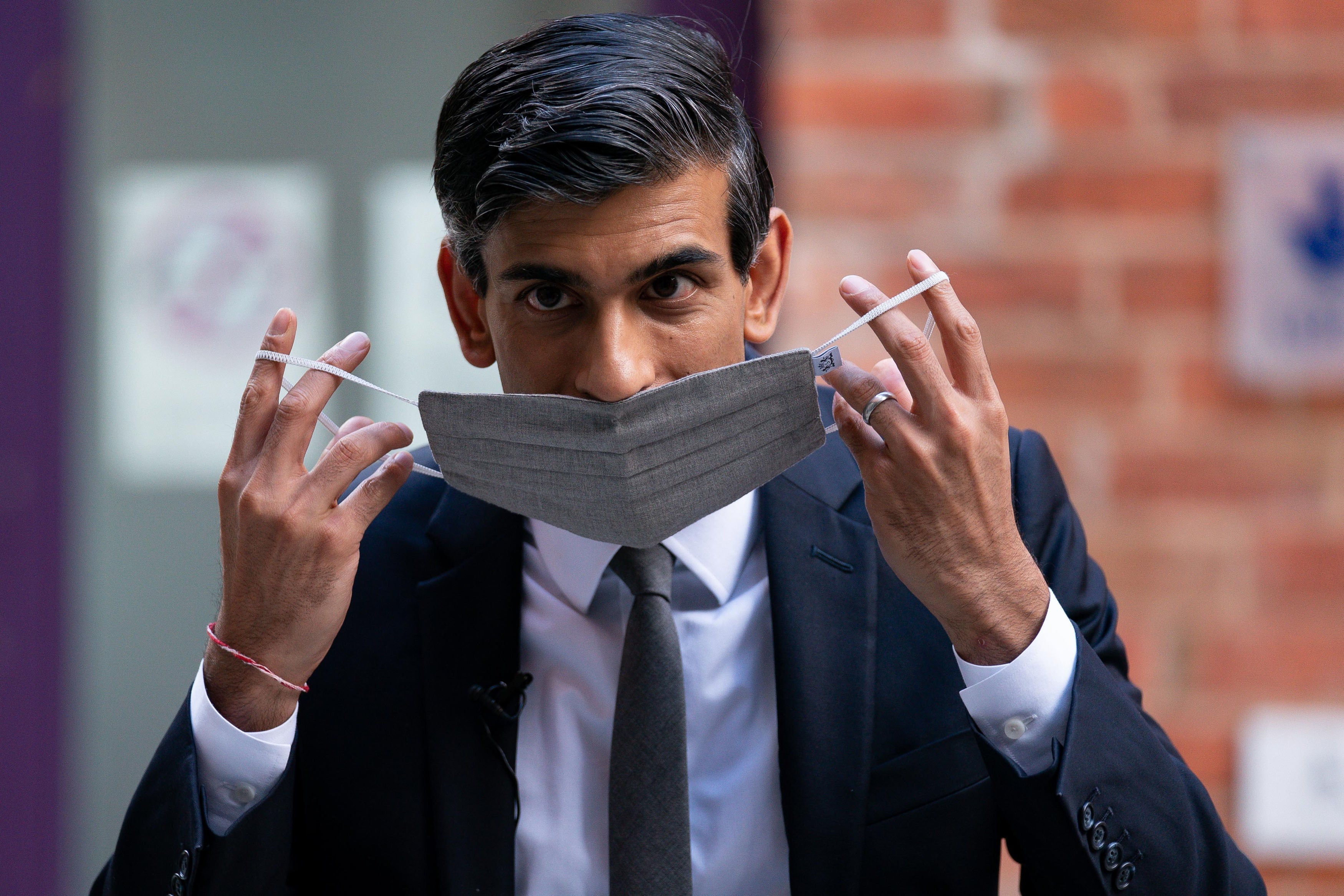How Rishi Sunak might redefine the ‘triple lock’ on pensions
John Rentoul engages in what the chancellor describes as ‘speculation’ about how the government might wriggle out of its promise to older people


The pensions triple lock “is the government’s policy” said the chancellor on breakfast TV, but “I very much recognise people’s concerns”. How reasonable, reassuring and completely ambiguous.
The promise to raise the state pension in line with prices, earnings or 2.5 per cent, whichever is highest, is known as the triple lock. It was invented by the coalition government in 2010 and repeated in all the main party manifestos, including the Conservative manifesto of 2019.
The problem with it is that the coronavirus crisis has distorted average earnings, first downwards, which was all right because at the last pension uprating, the 2.5 per cent kicked in. But since then earnings have recovered from the dip, which is why the Office for Budget Responsibility said this week that the usual figure for average earnings that would be used to calculate the triple lock is currently a 5.6 per cent increase, and it could be 8 per cent by the time next year’s pension increase is decided.
So when Rishi Sunak says he recognises people’s concerns, who is he talking about? The pensioners who suspect the government may break its manifesto promise and increase their pensions by less? Or the taxpayers who think there may be better uses of public money than paying a huge and recurring sum as the result of a statistical quirk?
My guess is that the concerns of the second are rather more recognisable to Sunak than those of the first. But the implication of what he has said is that he will balance the two. “We want to make sure the decisions we make and the systems we have are fair, both for pensioners and for taxpayers,” he said.
That suggests that the triple lock is not going to survive in its most generous form. The chancellor was asked if he was “looking for wriggle room”, and said: “I don’t know the numbers yet because they haven’t been published, we haven’t got to that point yet. At this point it is speculation.” By which I think he meant: “Yes.”
The terms of the triple lock promise are sufficiently vague as to allow some interpretation. It has not been written into law: the law simply states that the state pension shall be increased “by such a percentage as she [the secretary of state for work and pensions] thinks fit”.
When it was first formulated, in George Osborne’s 2010 Budget, he referred only to “earnings”. This was interpreted by the Treasury as the annual rise in the official index of average earnings to the May-July quarter before the April uprating, so we are currently in the quarter that would be used for next year’s uprating.
But Sunak could argue that the intention behind the earnings guarantee is that the state pension should not be allowed to fall behind earnings over time, in which case it would make sense to refer to the level of average earnings before the pandemic. It would be uncomfortable for him to endure Labour charges of breaking a manifesto promise, but he will insist that he has kept it because the state pension would still have kept up with earnings since the election.
That is why, I think, he was able to say the triple lock “is” the government’s policy this morning – although some journalists detected some wriggle room in the use of the present tense. I don’t think that is right: I think it will continue to be the government’s policy, but the way it is calculated will change. That was presumably what allowed the prime minister’s spokesperson to say last month: “The government made a commitment at the last election, and plans to stick to that commitment.”
It would be better to redefine the triple lock, in any case, than to “suspend” it, which is what the chancellor and the prime minister have done with the manifesto promise on foreign aid. That is more clearly a breach of a manifesto promise, although the political damage is limited by the unpopularity of foreign aid with most voters.
The state pension, though, is a different matter. Public opinion would not tolerate a government that tried to balance the books on the back of “those who have worked hard and put in for decades”, as the Tory manifesto put it. Between now and the Budget in the autumn, Sunak and Johnson will have to convince pensioners and the wider public that raising the state pension ahead of average earnings since the election fulfils their promise – even if some people may have expected more.



Join our commenting forum
Join thought-provoking conversations, follow other Independent readers and see their replies
Comments